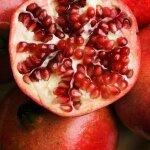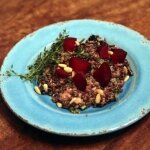
Because Brookhaven Retreat believes in maintaining the highest standards in women’s health, its recent juicing program uses solely organic produce. Research shows that trace amounts of pesticides are still available in the produce we purchase at the supermarket. When fruits and vegetables are imported, these pesticides may even be varieties that are banned from use in the U.S. These can interact with our cells in ways we don’t yet understand.
Because of this, Brookhaven Retreat uses organic and garden-grown ingredients wherever possible. This is especially important when we consume the skin of these fruits and vegetables. However, buying organic can become cost-prohibitive for many women.
Each year, the Environmental Working Group releases a list of the worst pesticide-laden produce alongside a list of those with the least pesticide residue. By focusing on buying the top 12 offenders organically, it says we can eliminate up to 80 percent of pesticides from our diet.
Dirty Dozen
- Apples
- Celery
- Cherry tomatoes
- Cucumbers
- Grapes
- Hot peppers
- Nectarines
- Peaches
- Potatoes
- Spinach
- Strawberries
- Sweet bell peppers
Clean Fifteen
- Asparagus
- Avocados
- Cabbage
- Cantaloupe
- Sweet corn
- Eggplant
- Grapefruit
- Kiwi
- Mangoes
- Mushrooms
- Onions
- Papaya
- Pineapples
- Sweet peas
- Sweet potatoes
Focusing on the source and benefits of what we eat creates an awareness of nutrition that benefits women’s health. Women learn to nurture themselves by making nutritional choices that benefit their body and mood. This develops a foundation of self-respect and awareness upon which residential treatment flourishes.
























































